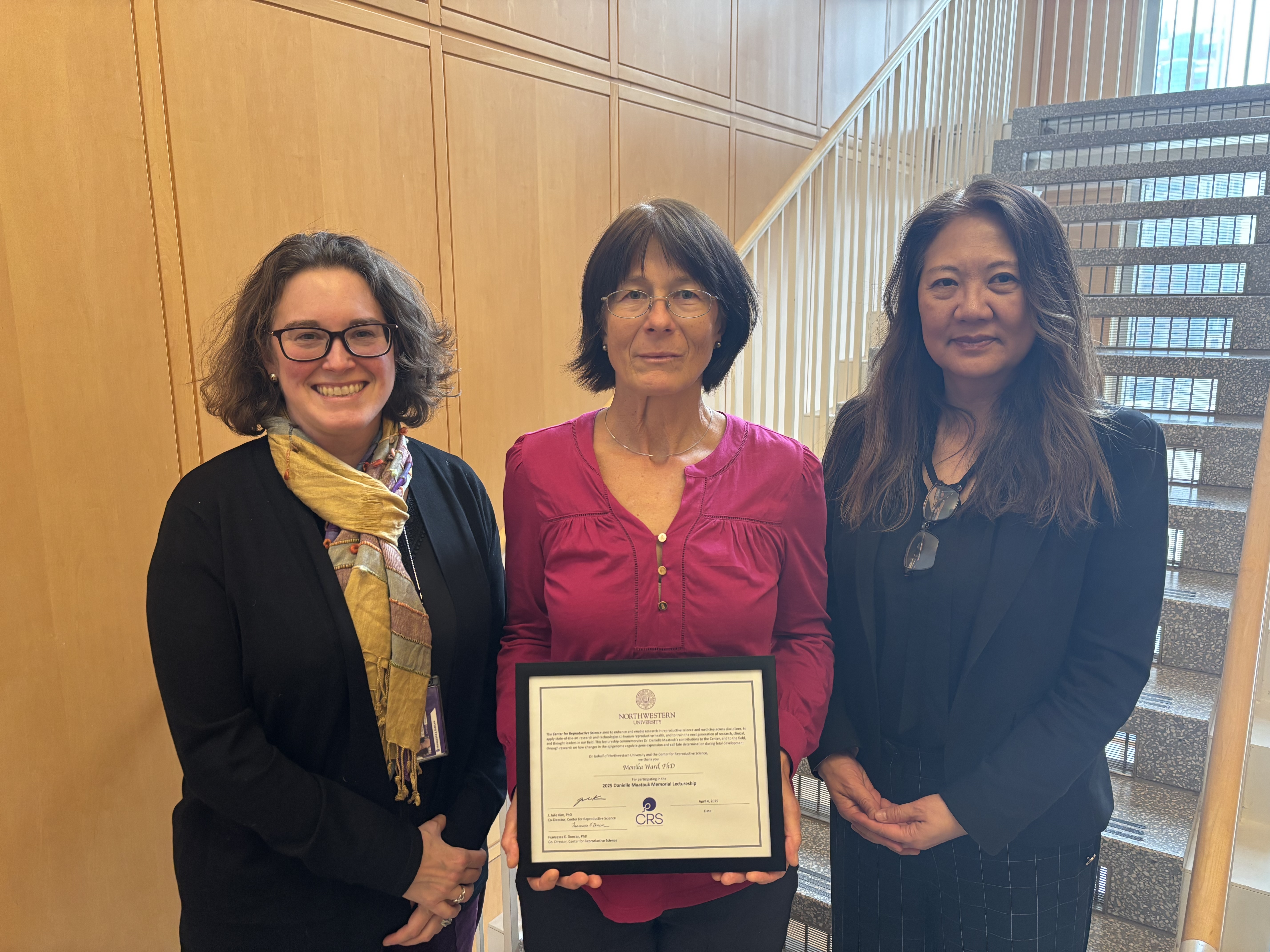CRS Hosts Dr. Monika Ward for Danielle Maatouk Memorial Lecture
On Friday, April 5, 2025, the Center for Reproductive Science hosted the Danielle Maatouk Memorial Lecture, welcoming Dr. Monika Ward as this year's distinguished speaker. This annual lecture honors the life and work of Dr. Danielle Maatouk, a brilliant scientist whose research helped shape the field of reproductive science and medicine. Dr. Maatouk was known for her investigations into how changes in the epigenome influence gene expression and guide cell fate during fetal development. Her scientific contributions and commitment to mentorship continue to resonate deeply with the reproductive science community even after her passing. 
Dr. Ward, a Professor at the Yanagimachi Institute for Biogenesis Research at the John A. Burns School of Medicine, University of Hawai‘i at Mānoa, delivered a compelling talk titled, "Do we need Y chromosomes for successful reproduction?" The Y chromosome has long been viewed as essential for male reproduction, housing genes that drive sperm development and function. But Dr. Ward’s research turns this assumption on its head. Her research group explores whether these genes, and the Y chromosome itself, are truly necessary for mammalian reproduction.
During her lecture, Dr. Ward walked the audience through years of research using mouse models, aiming to identify the key genetic components needed for male fertility. One major focus was the XXSry mouse model which despite developing testes due to the presence of the Sry gene, are sterile. This sterility may be related to the presence of two X chromosomes, a known factor in human infertility as well. Dr. Ward's team confirmed that Sry is sufficient to drive testis formation. However, another gene, Eif2s3y, was found to be responsible for initiating germ cell development, though it is not sufficient for completing spermatogenesis. To identify additional players involved in sperm formation, her team examined the male and female versions of the gene: Eif2s3y and Eif2s3x. When both were replaced, they observed the development of round spermatids and the formation of acrosomes, but no mature sperm.
Further investigation turned to Zfy2, a gene whose inclusion significantly improved assisted reproductive technology (ART) outcomes. The presence of Zfy2 led to higher sperm counts and more typical sperm morphology. Notably, while both Zfy1 and Zfy2 are known to contribute to the second meiotic division, a stage when sex chromosomes are typically silenced, Dr. Ward’s team confirmed that these genes remained expressed. Knocking out Zfy1 alone produced minimal changes, but loss of Zfy2 led to marked decreases in testis weight, sperm count, and sperm quality. Mice lacking both Zfy1 and Zfy2 were completely infertile, underscoring the importance of these genes in regulating meiosis and supporting spermatogenesis.
At the conclusion of her talk, Dr. Ward reflected on the broader landscape of reproductive biology across species, highlighting two mammals, the Japanese spiny rat and certain mole species, that naturally lack Y chromosomes. These unusual exceptions offer fascinating insights into how sex determination and fertility can evolve without the Y chromosome.
Dr. Ward’s findings have far-reaching implications for individuals dealing with infertility or Y chromosome abnormalities. Advances in reproductive technology could, one day, offer new solutions for creating healthy families despite genetic challenges. The Center for Reproductive Science extends its heartfelt thanks to Dr. Ward for her thought-provoking presentation and for honoring Dr. Danielle Maatouk’s enduring impact on the field.